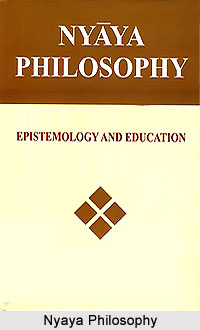 A cause is outlined as an unconditional and invariable antecedent of an effect and an effect as an unconditional and invariable consequent of a cause. The same cause produces the same effect; and the same effect is produced by the same cause. The cause is not present in any hidden form whatsoever in its effect.
A cause is outlined as an unconditional and invariable antecedent of an effect and an effect as an unconditional and invariable consequent of a cause. The same cause produces the same effect; and the same effect is produced by the same cause. The cause is not present in any hidden form whatsoever in its effect.
The conditions mentioned below should be met:
• The cause must be antencedent (Purvavrtti)
• Invariability (Niyatapurvavrtti)
• Unconditionality (Ananyathasiddha)
Nyaya recognises five kinds of accidental antecedents (Anyathasiddha):
• Just an accidental antecedent. E.g., The colour of the potter`s cloth.
• Remote cause is not a cause because it is not unconditional. E.g., The father of the potter.
• The co-effects of a cause are not causally related.
• Eternal substances, or eternal conditions are not unconditional antecedents. e.g. space.
• Unnecessary things, e.g. the donkey of the potter.
Nyaya recognises three kinds of cause:
• Samavayi, material cause. E.g. Thread of a cloth.
• Asamavayi, colour of the thread which gives the colour of the cloth.
• Nimitta, efficient cause, e.g. the weaver of the cloth.



















